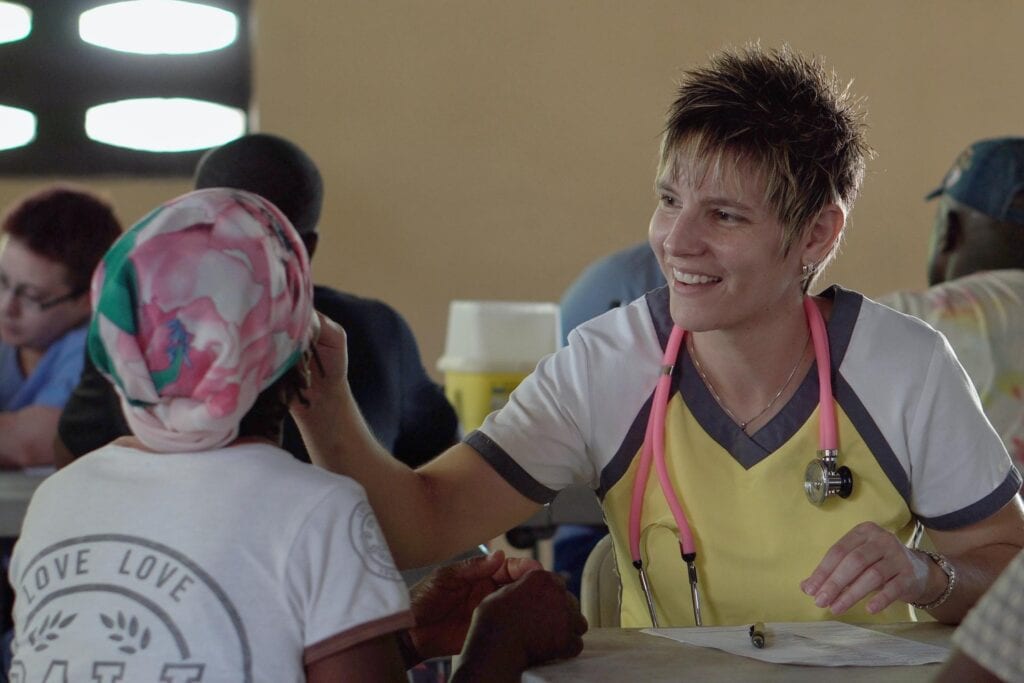BUCKHANNON – The Rotary Club of Buckhannon-Upshur learned about the West Virginia Rural Health Education Centers and the various programs they offer for future and current health professionals.
Amanda White, executive director of the Northern West Virginia Rural Health Education Center, spoke at during the March 16, 2021 Rotary meeting.
“Our mission is to bring quality health care to the underserved populations in 23 West Virginia counties by training, recruiting and retaining health care professionals,” White said. “The way we do that is we focus on community-based student education.”
According to its website, the Area Health Education Centers program was developed by Congress in 1971 to develop and maintain a health professions workforce committed to assisting underserved populations.
“The West Virginia AHEC program helps to bridge the gap between academic medicine and local community health needs by addressing rural health disparities and encouraging cooperation between rural communities and health care professionals,” the website explains.
One of WVRHEC’s programs includes the Health Occupations Today Expo, an event mainly attended by 11th- and 12th-graders and based in Elkins.
“We invite students from six counties – our last one we had 10 schools from six counties – and we had 35 vendors that attended,” White said. “These vendors range from WVU School of Pharmacy to West Virginia Caring Hospice, and the Davis Memorial Health System is very active in this as well, and they bring many of their departments and a lot of hands-on activities for the students.”
Another successful program for high school students is the Moving Onward and Upward program, a high school pipeline program for medical professions.
“These students are selected when they’re juniors and seniors in high school, and they have an interest in health professions, they have good grades, good attendance and they complete 100 hours of clinical shadowing in the Minnie Hamilton Health System — we have a great relationship with Minnie Hamilton Health System,” White said. “These students complete three projects during the program that runs typically from November to April, where they’re completing their shadowing and they have regular meetings and assignments along the way.”
In-depth research is also involved.
“They research a public health issue, they do research on the health career of their choice, and they have an interview with a health professional, and they present each of these projects,” White explained.
White said a select number of students participate in the program each annually – about five to 10 students.
COVID-19 has prevented several programs from taking place, but a new one was formed to continue education.
“We created the Health Careers Virtual Job Shadow program in November 2020, and we mirrored the program from the two programs I just mentioned, where we focus on health professions and high school students,” White said. “Since we knew we’d be able to offer it virtually, we expanded our counties, so we selected Barbour, Braxton, Doddridge, Gilmer, Lewis, Marshall, Pleasant, Randolph, Ritchie, Tyler, Upshur and more counties, and we had 50 students that we selected to participate in this program.”
Lastly, White discussed was the Rural Community Health Scholars program, which 75 top health professions students throughout West Virginia are selected to participate in each year. It’s a two-year program with the goal of providing supplemental and interprofessional educational experiences to students interested in practicing in rural or underserved communities.
“Students complete some online education, and a lot of it is based on rural health, and then they complete an in-person experience in a West Virginia community,” White said. “This is known as a role immersion for these students and our focus is on opioid misuse, and we actually focus on Lewis and Upshur counties. We were able to offer it in person in 2019, and we stayed at Stonewall Resort, we had speakers talking about opioid paraphernalia from the sheriff’s office, and we have speaker talking about foster children, and we have an author that wrote a book called ‘American Pain.‘ His name is John Temple, he is a professor at WVU, and he talked with the students about his book and his work and the students also met with the Opportunity House Recovery Center and (executive director) Matthew Kerner.”
To read more about West Virginia Area Health Education Centers, click here.












